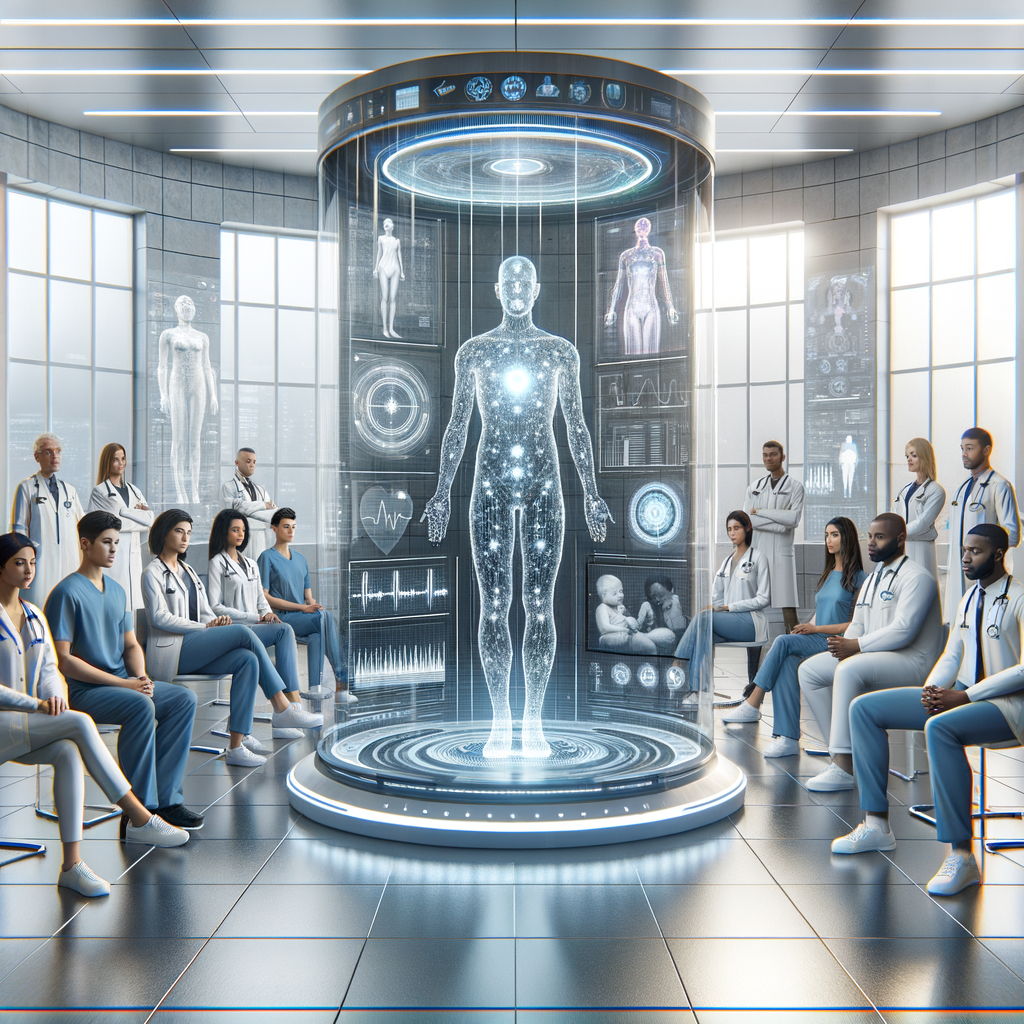Physical Address
304 North Cardinal St.
Dorchester Center, MA 02124
Physical Address
304 North Cardinal St.
Dorchester Center, MA 02124

Artificial Intelligence (AI) has been making significant strides in various sectors, and healthcare is no exception. From diagnosing diseases to developing new drugs, AI is reshaping the way healthcare operates. This article delves into the transformative role that AI plays in the healthcare sector.
Artificial intelligence refers to computer systems capable of performing tasks that usually require human intelligence. These tasks include learning from experience, understanding complex content, interpreting natural language, recognising patterns and making decisions. In healthcare, AI applications range from reading medical images to predicting patient outcomes.
One of the most significant contributions of AI in healthcare is its ability to diagnose diseases accurately and quickly. Machine learning algorithms can analyse vast amounts of data faster than humans can. For instance, AI can sift through thousands of medical images within seconds to detect anomalies such as tumours or fractures that might be missed by a human eye.
In addition to speed, AI also brings accuracy into disease diagnosis. Deep learning models are trained on millions of medical images enabling them to recognise even the subtlest signs of disease. This precision helps reduce diagnostic errors which are a major concern in traditional healthcare settings.
The process of drug discovery and development is time-consuming and costly. However, with the advent of AI technologies like machine learning and deep learning, this process has become more efficient.
AI can predict how different compounds will behave and whether they could form an effective drug for a specific ailment. By screening thousands of molecules rapidly, it reduces the time taken to identify potential drug candidates from years to days or hours.
AI’s predictive capabilities are another game-changer in healthcare. Predictive analytics powered by AI can help anticipate patient outcomes and potential health risks based on their medical history, lifestyle, and genetic factors.
For instance, machine learning models can predict the likelihood of a patient readmitting within 30 days after discharge. Such predictions enable healthcare providers to intervene early and provide necessary care to prevent readmission.
Personalised medicine is an emerging approach where treatments are tailored to individual patients based on their genetic makeup, lifestyle, and environment. Here too, AI plays a crucial role.
Genomic sequencing generates massive amounts of data that is difficult for humans to analyse. AI algorithms can process this data efficiently and identify patterns that may indicate a person’s susceptibility to certain diseases or their likely response to treatment. This information helps doctors devise personalised treatment plans for each patient.
In the future, we can expect AI to play an even more significant role in healthcare. It will continue improving disease diagnosis and drug discovery processes while also enhancing predictive healthcare and personalised medicine.
We may see more use of AI-powered robots assisting surgeons during operations or providing care for patients at home. Virtual health assistants could become commonplace, offering medical advice based on symptoms described by users.
Despite these promising developments, it’s important to remember that AI is not without challenges. Issues related to data privacy, algorithm bias, and the need for clear regulatory guidelines must be addressed as we move forward with integrating AI into our healthcare systems.
In summary, artificial intelligence holds immense potential for revolutionising healthcare delivery. By harnessing its power responsibly, we can create a future where accurate diagnoses are made quickly, effective treatments are personalised, and preventive care is based on reliable predictions.